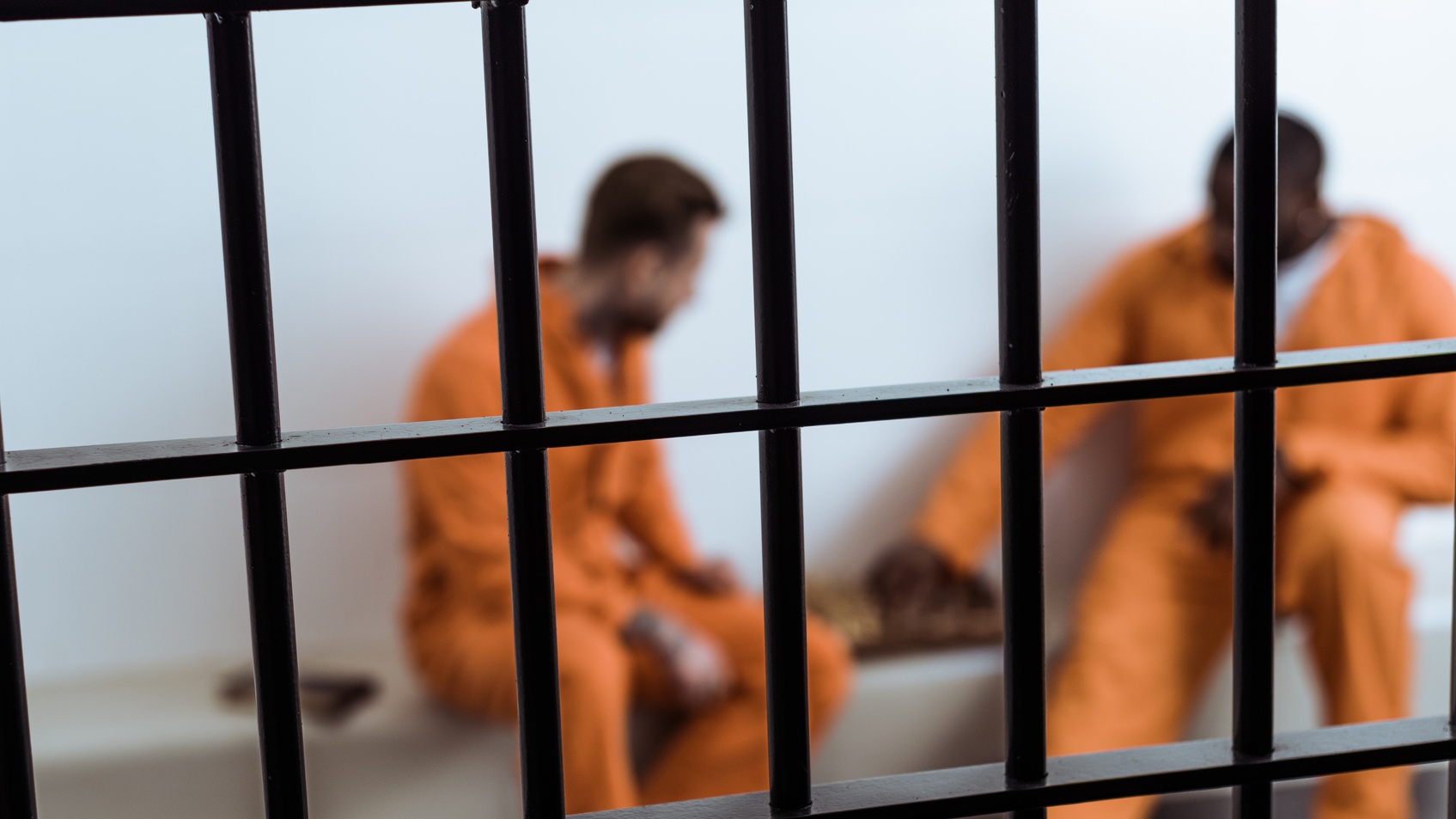New research indicates that although Black people are still more likely than any other race to be imprisoned, the rate of imprisonment has fallen 34% since 2006.
Pew Research Center examined data from a new report from the Bureau of Justice Statistics, the statistical agency of the U.S. Justice Department, that provided detailed information on inmates sentenced to more than a year in state or federal prison.
While overall imprisonment has fallen sharply for all races, it has declined mostly for Black people, Pew reported. In 2006, there were 2,261 Black inmates per 100,000 Black adults in the United States, and that number had fallen to 1,501 by the end of 2018.
The same rates fell 26% for Hispanics and 17% among white people. By 2018, there were 268 white incarcerated individuals per 100,000 white adults and 797 for Hispanics.
"There were 2,272 inmates per 100,000 black men in 2018, compared with 1,018 inmates per 100,000 Hispanic men and 392 inmates per 100,000 white men. The rate was even higher among black men in certain age groups: Among those ages 35 to 39, for example, about one-in-twenty black men were in state or federal prison in 2018 (5,008 inmates for every 100,000 black men in this age group)," the report stated.
These figures, however, leave out Black people that are being held in local jails or who have been given shorter sentences.
Since the end of slavery, and even before that, Black people have far outnumbered any other race in the country's prisons. Despite representing just 12% of the country's population, Black people account for 33% of the prison population, Pew reported. White Americans are 63% of the population yet only account for 30% of all those imprisoned.
A 2017 report from the Stanford Center on Poverty and Inequality found that one out of every 10 Black children has a parent behind bars.
For decades, the United States has had the world's highest incarceration rate, locking up a larger share of its population than any other country. However, the rate is falling for a variety of reasons. The latest report shows that overall incarceration has come down 17% due in no small part to massive decreases in the crime rate.
According to FBI statistics cited by Pew, the property crime rate from 1993 to 2018 dropped steeply by 54% while the U.S. violent crime rate decreased by 51% in the same time period.
The Pew study also attributes the overall drop to the decline in the incarceration of Black people, which social scientists have tried to theorize for years. While still double that of white women, the incarceration rate for Black women fell 30% between 2000 and 2009, according to the nonprofit The Sentencing Project.
In a 2015 statement to The Marshall Project, The New Jim Crow author Michelle Alexander said, “Until we learn the true value of the lives we have wasted, and until we truly reckon with our nation’s history … and until we muster, as a nation, a willingness to invest heavily in the communities that have suffered the most, we will find ourselves in an endless cycle of reform and retrenchment — periods of apparent progress followed by the creation of new systems of racial and social control."
Other researchers attribute the falling rates to the overall shift of law enforcement from focusing on crack and cocaine to meth and opioids.
The recent Pew report also highlights that the total number of Black people sentenced to prison has fallen below 500,000 and now stands at 465,200. The number was nearly 600,000 by the end of 2006.
